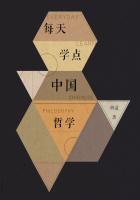THE MYSTERY SOLVED
The late Marquis de Cinq-Cygne had used his savings, as well as those of his father and mother, in the purchase of a fine house in the rue de Faubourg-du-Roule, entailing it on heirs male for the support of the title. The sordid economy of the marquis and his parents, which had often troubled Laurence, was then explained. After this purchase the marquise, who lived at Cinq-Cygne and economized on her own account for her children, spent her winters in Paris,--all the more willingly because her daughter Berthe and her son Paul were now of an age when their education required the resources of Paris.
Madame de Cinq-Cygne went but little into society. Her husband could not be ignorant of the regrets which lay in her tender heart; but he showed her always the most exquisite delicacy, and died having loved no other woman. This noble soul, not fully understood for a period of time but to which the generous daughter of the Cinq-Cygnes returned in his last years as true a love as that he gave to her, was completely happy in his married life. Laurence lived for the joys of home. No woman has ever been more cherished by her friends or more respected.
To be received in her house is an honor. Gentle, indulgent, intellectual, above all things simple and natural, she pleases choice souls and draws them to her in spite of her saddened aspect; each longs to protect this woman, inwardly so strong, and that sentiment of secret protection counts for much in the wondrous charm of her friendship. Her life, so painful during her youth, is beautiful and serene towards evening. Her sufferings are known, and no one asks who was the original of that portrait by Lefebvre which is the chief and sacred ornament of her salon. Her face has the maturity of fruits that have ripened slowly; a hallowed pride dignifies that long-tried brow.
At the period when the marquise came to Paris to open the new house, her fortune, increased by the law of indemnities, gave her some two hundred thousand francs a year, not counting her husband's salary;besides this, Laurence had inherited the money guarded by Michu for his young masters. From that time forth she made a practice of spending half her income and of laying by the rest for her daughter Berthe.
Berthe is the living image of her mother, but without her warrior nerve; she is her mother in delicacy, in intellect,--"more a woman,"Laurence says, sadly. The marquise was not willing to marry her daughter until she was twenty years of age. Her savings, judiciously invested in the Funds by old Monsieur d'Hauteserre at the moment when consols fell in 1830, gave Berthe a dowry of eighty thousand francs a year in 1833, when she was twenty.
About that time the Princesse de Cadignan, who was seeking to marry her son, the Duc de Maufrigneuse, brought him into intimate relations with Madame de Cinq-Cygne. Georges de Maufrigneuse dined with the marquise three times a week, accompanied the mother and daughter to the Opera, and curvetted in the Bois around their carriage when they drove out. It was evident to all the world of the Faubourg Saint-Germain that Georges loved Berthe. But no one could discover to a certainty whether Madame de Cinq-Cygne was desirous of making her daughter a duchess, to become a princess later, or whether it was only the princess who coveted for her son the splendid dowry. Did the celebrated Diane court the noble provincial house? and was the daughter of the Cinq-Cygnes frightened by the celebrity of Madame de Cadignan, her tastes and her ruinous extravagance? In her strong desire not to injure her son's prospects the princess grew devout, shut the door on her former life, and spent the summer season at Geneva in a villa on the lake.
One evening there were present in the salon of the Princesse de Cadignan, the Marquise d'Espard, and de Marsay, then president of the Council (on this occasion the princess saw her former lover for the last time, for he died the following year), Eugene de Rastignac, under-secretary of State attached to de Marsay's ministry, two ambassadors, two celebrated orators from the Chamber of Peers, the old dukes of Lenoncourt and de Navarreins, the Comte de Vandenesse and his young wife, and d'Arthez,--who formed a rather singular circle, the composition of which can be thus explained. The princess was anxious to obtain from the prime minister of the crown a permit for the return of the Prince de Cadignan. De Marsay, who did not choose to take upon himself the responsibility of granting it came to tell the princess the matter had been entrusted to safe hands, and that a certain political manager had promised to bring her the result in the course of that evening.
Madame and Mademoiselle de Cinq-Cygne were announced. Laurence, whose principles were unyielding, was not only surprised but shocked to see the most illustrious representatives of Legitimacy talking and laughing in a friendly manner with the prime minister of the man whom she never called anything but Monsieur le Duc d'Orleans. De Marsay, like an expiring lamp, shone with a last brilliancy. He laid aside for the moment his political anxieties, and Madame de Cinq-Cygne endured him, as they say the Court of Austria endured de Saint-Aulaire; the man of the world effaced the minister of the citizen-king. But she rose to her feet as though her chair were of red-hot iron when the name was announced of "Monsieur le Comte de Gondreville.""Adieu, madame," she said to the princess in a curt tone.
She left the room with Berthe, measuring her steps to avoid encountering that fatal being.
"You may have caused the loss of Georges' marriage," said the princess to de Marsay, in a low voice. "Why did you not tell me your agent's name?"The former clerk of Arcis, former Conventional, former Thermidorien, tribune, Councillor of State, count of the Empire and senator, peer of the Restoration, and now peer of the monarchy of July, made a servile bow to the princess.















